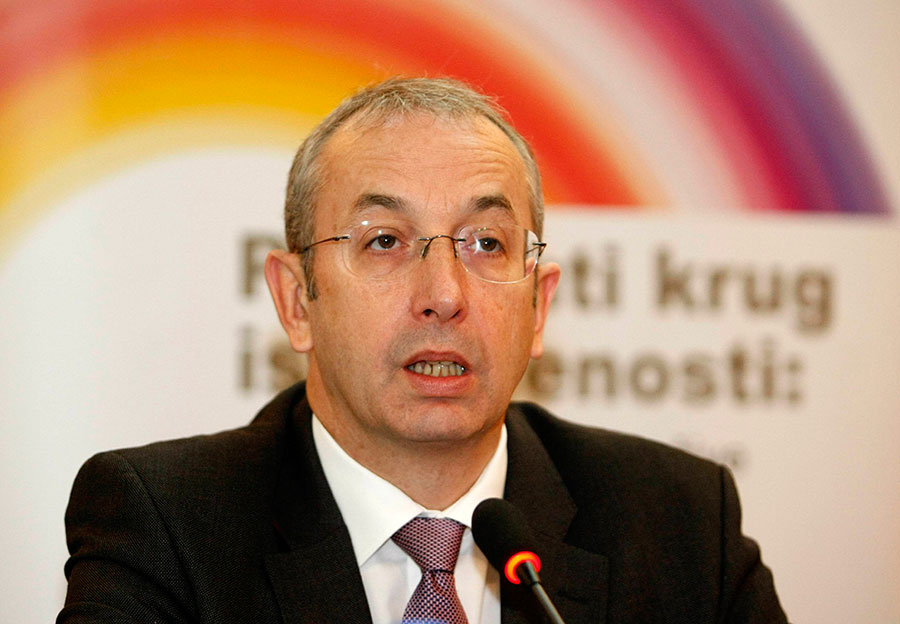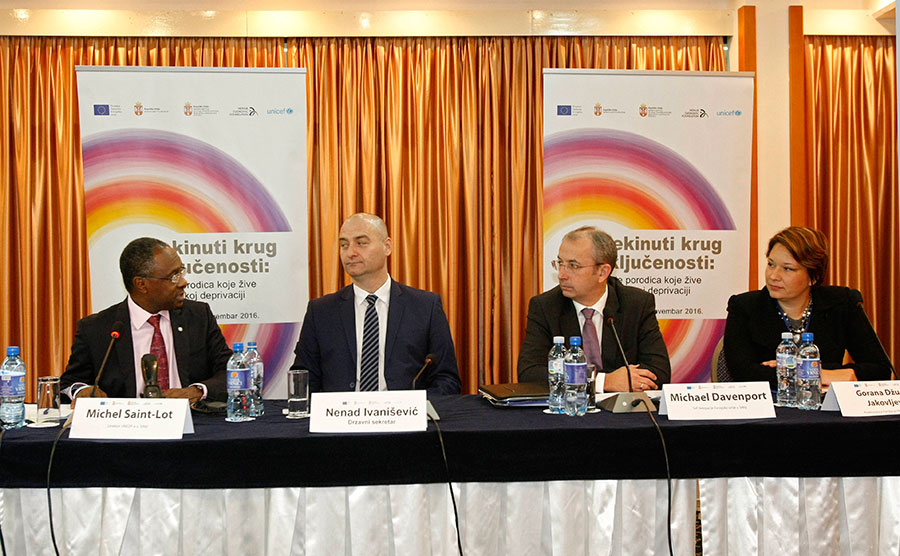A two-day conference titled “Breaking the exclusion circle: Strengthening families living in multiple deprivation” kicked off today in Belgrade, focusing on priorities in improving the work of social protection system aimed at supporting the most vulnerable children and families, that is the families with complex and multiple needs.
At the conference opening, Head of the EU Delegation to Serbia Ambassador Michael Davenport said that over the past decade the EU allocated EUR9 million for children protection.
He said that over the course of that long-standing process, the EU supported the construction of children daycare centres across Serbia.
“It is necessary to finalise the process because we want to help Serbia to set an example of good practice in the area of child protection,” Davenport said.
“In 2017, Serbia will earmark more than RSD500 million for social services,” said State Secretary at the Ministry of Labour, Employment, Veteran and Social Affairs Nenad Ivanisevic and added that said amount would increase earmarked transfers aimed at local self-governments.

Foto: Emil Vaš
He announced that towns and municipalities would be able to use the earmarked transfers and introduce the service of family outreach worker.
The service of family outreach worker is designed to support families at risk of child neglect, with a main goal of securing a quality child development in a family environment and prevent child displacement.
The service of family outreach worker was first introduced through a pilot project implemented in Belgrade, Nis, Novi Sad and Kragujevac back in 2013. In the past three years, more than 600 families with over 1 400 children have benefited from the pilot project implemented by UNICEF and Novak Djokovic Foundation with the support of the EU.
As stated at the conference, the experience suggests that the introduction of family outreach worker service led to a decrease in the number of children removed from their families.
The Director of Novak Djokovic Foundation Gorana Dzudza Jakovljevic said that “the ultimate goal is to integrate this service into the social protection system” adding that “the results of the pilot projects showed that the State was on the right track to do so.”
Director of the UNICEF Serbia Office Michel Saint-Lo reminded that by acceding to international conventions, Serbia committed to deliver child care solutions, adding that it had come a long way and made progress in this endeavour.
According to him, over the course of project implementation, children are gradually being removed from institutions and returned to their families.
Seint-Lo said that Serbia had developed a good model which aroused interest among other countries, such as Peru, adding that the next step in the process is the integration of that service into the social protection system.
A two-day conference, dedicated to strengthening families living in multiple deprivation, will facilitate sharing of experience and lessons learned in the field of improving social social services aimed at preventing the placement of children in institutions, development of innovative services and turning foster care into a provisional form of providing support to families with children with developmental disorders and disabilities.




